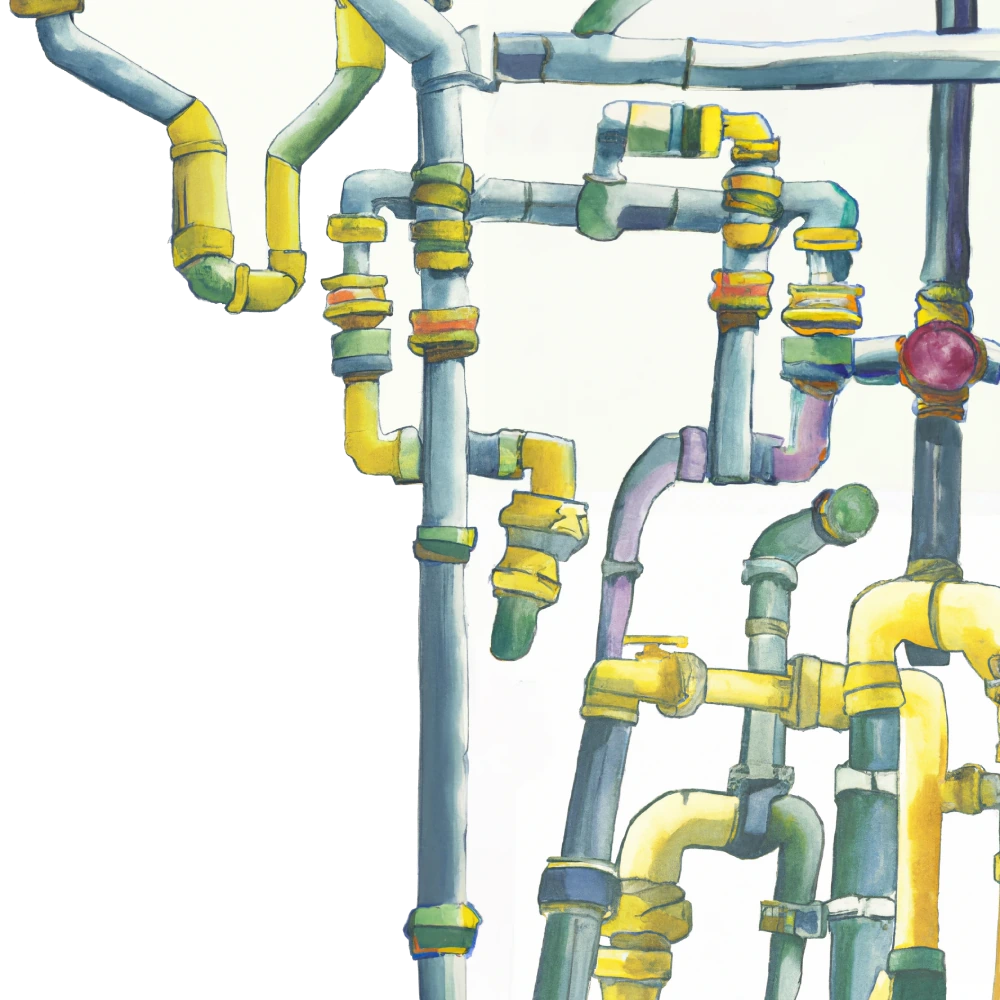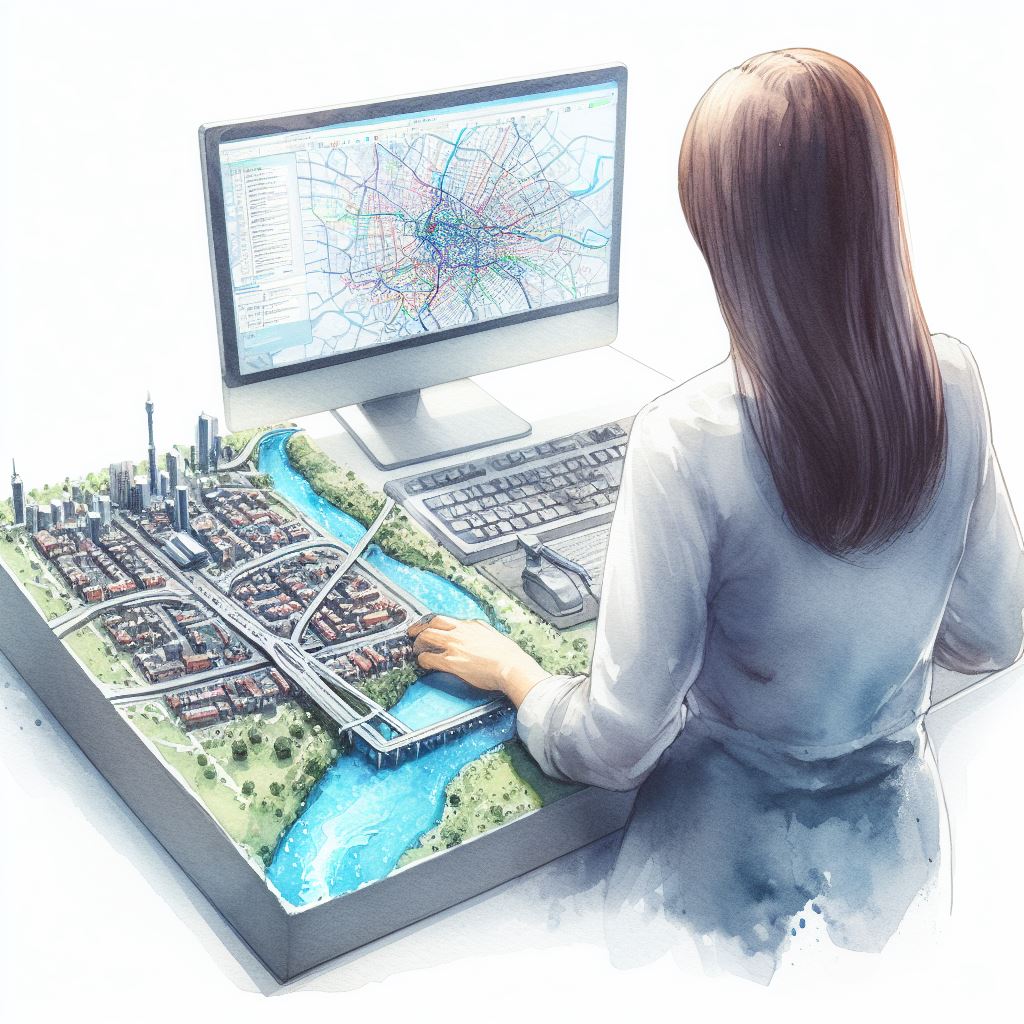

Mastering
Water Models
Water Models
A comprehensive and modern handbook for hydraulic modeling. Learn practical skills using clear language and interactive examples from real world models.
Get Started
A new approach to learning
Water modeling can be a challenging skill to master. Many learners start from academic studies, gaining a solid theoretical foundation but often lacking in practical, real-world applications. Some acquire knowledge through hands-on experience at utilities or consultancies, benefiting from direct application but not always grasping the broader concepts or the variations from one region to another. Others may also receive training from software vendors, focusing mainly on tool-specific instructions without delving deep into overarching modeling principles.
One of the innovative features of Mastering Water Models is the integration of interactive, web-based examples. As learners progress through the material, they can directly interact with models right within their browsers. By adjusting parameters and observing real-time changes, users gain a hands-on understanding of how different factors influence the behavior of the model. This immersive experience, allows instant feedback, enriches the learning process and ensures concepts are not only understood theoretically but also practically.
One of the innovative features of Mastering Water Models is the integration of interactive, web-based examples. As learners progress through the material, they can directly interact with models right within their browsers. By adjusting parameters and observing real-time changes, users gain a hands-on understanding of how different factors influence the behavior of the model. This immersive experience, allows instant feedback, enriches the learning process and ensures concepts are not only understood theoretically but also practically.
Global Modeling Practices
Beyond the theory, the course incorporates numerous real-life examples to illustrate how these principles play out in actual scenarios. And while knowing how to operate specific software is important, an emphasis is placed on teaching modeling techniques and strategies that are applicable across various platforms.
The diversity of modeling practices across the world is another crucial aspect addressed. The course is designed to introduce learners to different global practices, ensuring they are well-equipped to work in any region. This is not just about understanding different tools and techniques but also about appreciating the nuances and preferences of modeling practices from around the world.
At its core, Mastering Water Models is more than just a course. It's an innovative new method to teach hydraulic modeling. Whether you're just beginning or looking to enhance your existing skills, the goal is to provide a well-rounded, accessible, and meaningful learning experience.
The diversity of modeling practices across the world is another crucial aspect addressed. The course is designed to introduce learners to different global practices, ensuring they are well-equipped to work in any region. This is not just about understanding different tools and techniques but also about appreciating the nuances and preferences of modeling practices from around the world.
At its core, Mastering Water Models is more than just a course. It's an innovative new method to teach hydraulic modeling. Whether you're just beginning or looking to enhance your existing skills, the goal is to provide a well-rounded, accessible, and meaningful learning experience.
Loading...
Interactive Learning
Dive into web-based examples and directly interact with models for an immersive and practical understanding.
Technique Over Tools
Master practical modeling techniques and strategies, not just software-specific functions.
Become an Expert
Learn the fundamentals of modeling or hone your skills in advanced topics, all at your own pace.
What you'll learn
The fundamentals
Hydraulics
Grasp the fundamental principles of fluid flow and pressure behavior within water distribution systems.
Calibration
Learn the techniques and tools required to tweak and refine your models so that they match observed data, leading to more reliable and precise simulations.
Model Building
Explore step-by-step processes to construct accurate and functional water distribution system models.
Planning
Grasp the strategies and considerations required when setting up simulations aimed at long-term planning, infrastructure investments, and growth prediction.
Field Testing
Discover techniques for collecting essential data and measurements from real-world systems to enhance model accuracy and reliability.
Operations
Use your model for operational decisions such as pipe shutdowns, pumping schedules and emergency responses.
Demand
Understand how to estimate and incorporate water consumption patterns of users to simulate realistic demands inside your models.
Water Quality
Analyze methods to model and predict the decay and growth of various contaminants and chemicals in a distribution system, ensuring safe and compliant water delivery.
Advance your skills
Live Modeling
Look into real-time integration of hydraulic models with system telemetry, enabling on-the-fly adjustments and dynamic model validations against live operational data.
Advanced Water Quality
Extend your understanding of water quality simulations to encompass complex contaminant transport, reaction kinetics, and source tracing within distribution systems.
Transients
Understand the factors causing water hammer or pressure surges, and the techniques to model, predict, and mitigate these potentially harmful events in a system.
Modeling Algorithms
Get acquainted with the underlying mathematical algorithms and techniques that drive a hydraulic model's computational engine.
Coding & Scripts
Learn how to utilize coding to automate tasks, customize simulations, and integrate hydraulic models into broader engineering workflows.


Meet Luke Butler
Luke Butler is a hydraulic modeler and software developer from Canada with over a decade of experience in the water industry. He has held various technical engineering roles in Australia, the United Kingdom, and Canada.
An active member of several water-centric organizations, he is involved with the American Water Works Association (AWWA), the Australian Water Association (AWA), the Smart Water Networks (SWAN), and the Clean Water Modelling Advisory Group (CwMAG). Throughout his career, he has participated in and spoken at dozens of conferences and events globally and is a member of AWWA's Digital Twins and Engineering Modeling Applications Committee.
His commitment to advancing the industry extends to open-source contributions, notably to EPANET, the leading hydraulic modeling engine. He has published several open-source software tools, often showcasing innovative applications of hydraulic models for operational purposes. Central to his contributions is epanet-js, a JavaScript version of EPANET that allows water models to run on the web.
An active member of several water-centric organizations, he is involved with the American Water Works Association (AWWA), the Australian Water Association (AWA), the Smart Water Networks (SWAN), and the Clean Water Modelling Advisory Group (CwMAG). Throughout his career, he has participated in and spoken at dozens of conferences and events globally and is a member of AWWA's Digital Twins and Engineering Modeling Applications Committee.
His commitment to advancing the industry extends to open-source contributions, notably to EPANET, the leading hydraulic modeling engine. He has published several open-source software tools, often showcasing innovative applications of hydraulic models for operational purposes. Central to his contributions is epanet-js, a JavaScript version of EPANET that allows water models to run on the web.
Want to keep up to date?
Share your contact details and we will notify you when new sections of Mastering Water Models are published.

